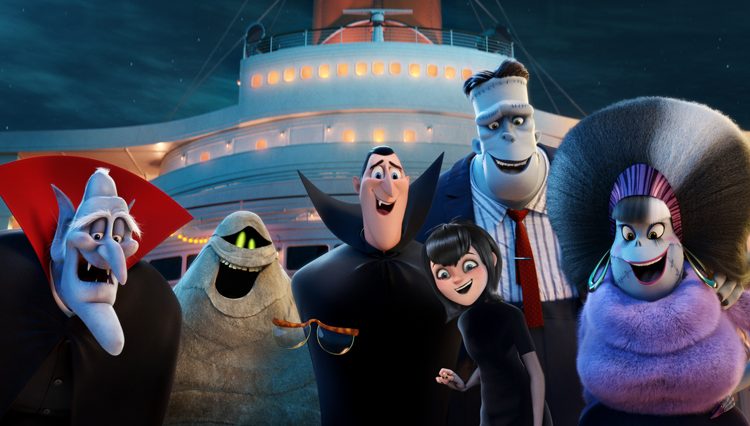“I loved you then and I love you now and I have loved you every second in between.”
Lisey’s Story, 2021 (Julianne Moore) Bad Robot Productions/Apple Inc.
Stephen King of recent years has been hit-or-miss for me as a Constant Reader. I prefer his earlier, simpler stories to the unwieldy, ambitious sagas he cranks out at a frightening pace in his elder years. The three “C’s” of King: Carrie, Christine, and Cujo carry much more meaning for me than say, Doctor Sleep or Insomnia (which I had to stop reading because it put me to sleep). I don’t know where he finds the time or energy, but regardless of the quality, he’s an imposing talent who always has something interesting to say.
I had the opportunity to read Lisey’s Story in galleys a few years back. That book and Cell I consider to be his finest works of the last few years, likely due to the fact that they are compact, streamlined tales with simple endings. I, like most readers, take issue with how King ends his stories (he’s a much better short-story writer), and sometimes the endings will undermine everything that had gone before. Even King acknowledges this. Witness his cameo in It Chapter Two.
Remember how Under the Dome ended in the book? Alien children playing video games? Yeah. That’s what I’m talking about, and though Lisey’s Story steals its ending from Rose Madder, the whole thing doesn’t fall apart under the weight of its ambition. It’s a simple story about a process of mourning. Lisey’s (Julianne Moore) husband, famed author Scott Landon (Clive Owen), having recently died at the hands of an obsessive stalker, leaves a bizarre trail of clues behind for his widow to find as she battles another stalker who demands she turn over her husband’s unpublished writings to a university for safekeeping.
Lisey, having led something of a sheltered life, must do battle with her demons, as well as her sisters: the belligerent Darla (Jennifer Jason Leigh), and the catatonic Amanda (Joan Allen). The series, produced for Apple, follows the curious narrative beats of the book, in that we learn what Lisey learns as she goes back in her mind to the days when Scott courted her before they were married. The clues to the “bool hunt” (like an otherworldly scavenger hunt) manifest memories as well as Scott’s horror stories about growing up with his insane, abusive father as well as his predilection for self-mutilation.
She remembers being taken into another world, which very closely resembles the alternate dimension of King’s Dark Tower books. She knows that as Amanda was slipping into dementia, her husband helped her negotiate the loss of her faculties by transporting her to this altogether different place. It’s a frightening thing to be lost in helplessness, and the series confirms the book’s thesis: the mentally disturbed and the demented have more in common than either group would care to admit.
King adapts his own book, and he is absolutely fearless with the material. This is more of what I wanted to see with the recent remake of The Stand, and thankfully, he did manage to get there with the final episode, “Coda” aka “Frannie in the Well,” which almost made me forgive the travesty of the previous eight episodes. Maybe it’s just that writers of a certain age don’t understand his process. Much of what King writes is a reflection of his generation and years.
King writes women a certain way. He writes men a certain way. How they interact is at the core of Lisey’s Story. This is an interesting development for a female character. She meets and falls in love with a man who has serious mental problems as well as a spark of the divine, and even with all the baggage she’ll have to carry through the remainder of their lives together, she marries him. Marriage is sacrifice. Marriage is giving up a portion of a life, a portion of an identity; the surrender of individuality to a collective: man and woman, man and man, woman and woman – these are quaint concepts in today’s world of unparalleled narcissism and sexual antipathy.
Lisey, consequently, lives half a life inside the shadow of her husband. In the series, it is other characters who marginalize her, who cast her as the talentless leach, harpy, succubus who latches on to the talent of her husband and consequently lives vicariously through him. In the book, she puts these labels on herself. Julianne Moore plays her perfectly; as a vessel to be filled with the experience of her husband, and then to take his experience and preserve her life in that fashion. This isn’t new for Moore. She can play these characters in her sleep.
The major problem of adapting Lisey’s Story as a limited television series is the pacing. It’s a bit numbing to experience the strange, terrifying yet beautiful surrealism of Landon’s world and the “Booya Moon,” and King’s script spends too much time in that world before setting up the rules. Landon’s rules are telegraphed in the fourth or fifth episode, but by that point, we’ve already set up the threat on Lisey’s life by Professor Dashmiel (Ron Cephas Jones) and his violent proxy, Jim Dooley (Dane DeHaan). As I said before, this is a simple story with few characters that doesn’t necessarily need eight hours to unfold.
It’s almost as if the audience is Amanda’s character; only getting brief bits of clarity standing in mental quicksand, unable to move, and then finally by episode six, “Now You Must Be Still,” we (and Amanda) are permitted to be ambulatory and coherent. The 7th and 8th episodes, bafflingly, split the climax into two parts. Lisey’s Story, being as simple a story that King had told in the recent past, should not have been made as a limited series. If the storytelling were relegated to a ninety-minute movie (unheard of, I know) like Brian De Palma’s Carrie, Lisey’s Story would have been a serious Oscar™ contender.








